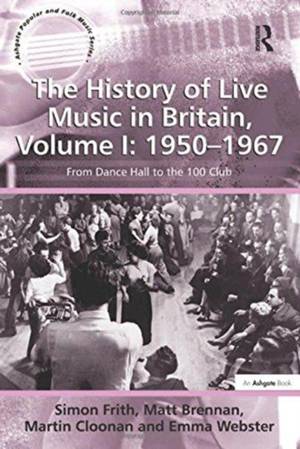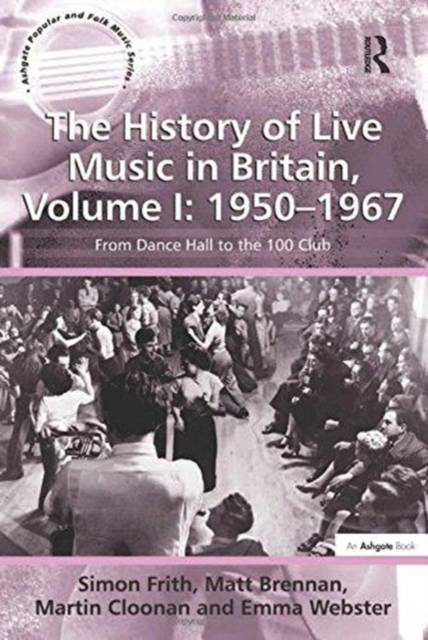
- Afhalen na 1 uur in een winkel met voorraad
- Gratis thuislevering in België vanaf € 30
- Ruim aanbod met 7 miljoen producten
- Afhalen na 1 uur in een winkel met voorraad
- Gratis thuislevering in België vanaf € 30
- Ruim aanbod met 7 miljoen producten
Zoeken
The History of Live Music in Britain, Volume I: 1950-1967
From Dance Hall to the 100 Club
Simon Frith, Matt Brennan, Martin Cloonan, Emma Webster
€ 102,45
+ 204 punten
Uitvoering
Omschrijving
The social history of music in Britain since 1950 has long been the subject of nostalgic articles in newspapers and magazines, nostalgic programmes on radio and television and collective memories on music websites, but to date there has been no proper scholarly study. The three volumes of The History of Live Music in Britain address this gap, and do so from the unique perspective of the music promoter: the key theme is the changing nature of the live music industry. The books are focused upon popular music but cover all musical genres and the authors offer new insights into a variety of issues, including changes in musical fashions and tastes; the impact of developing technologies; the balance of power between live and recorded music businesses; the role of the state as regulator and promoter; the effects of demographic and other social changes on music culture; and the continuing importance of do-it-yourself enthusiasts. Drawing on archival research, a wide range of academic and non-academic secondary sources, participant observation and industry interviews, the books are likely to become landmark works within Popular Music Studies and broader cultural history.
Specificaties
Betrokkenen
- Auteur(s):
- Uitgeverij:
Inhoud
- Aantal bladzijden:
- 236
- Taal:
- Engels
- Reeks:
Eigenschappen
- Productcode (EAN):
- 9781138248496
- Verschijningsdatum:
- 9/09/2016
- Uitvoering:
- Paperback
- Formaat:
- Trade paperback (VS)
- Afmetingen:
- 156 mm x 234 mm
- Gewicht:
- 335 g

Alleen bij Standaard Boekhandel
+ 204 punten op je klantenkaart van Standaard Boekhandel
Beoordelingen
We publiceren alleen reviews die voldoen aan de voorwaarden voor reviews. Bekijk onze voorwaarden voor reviews.











